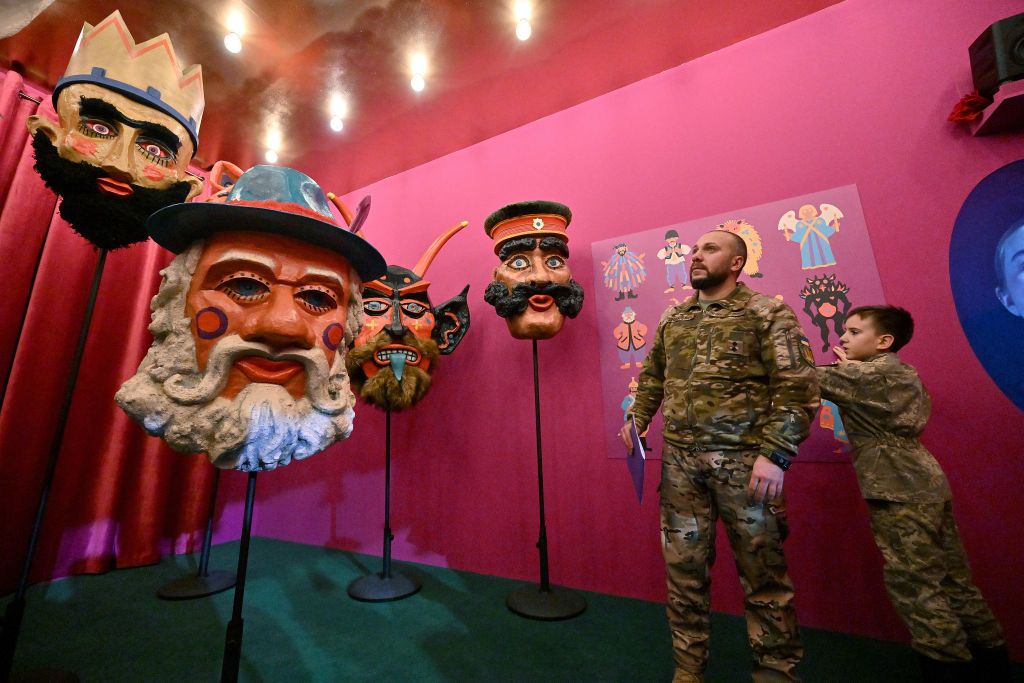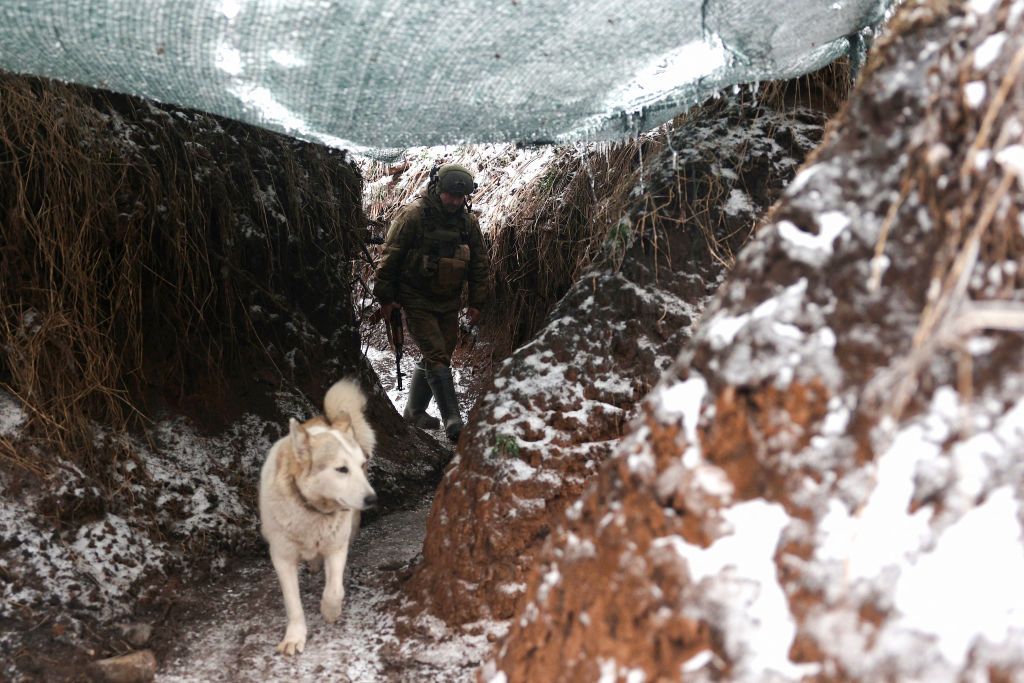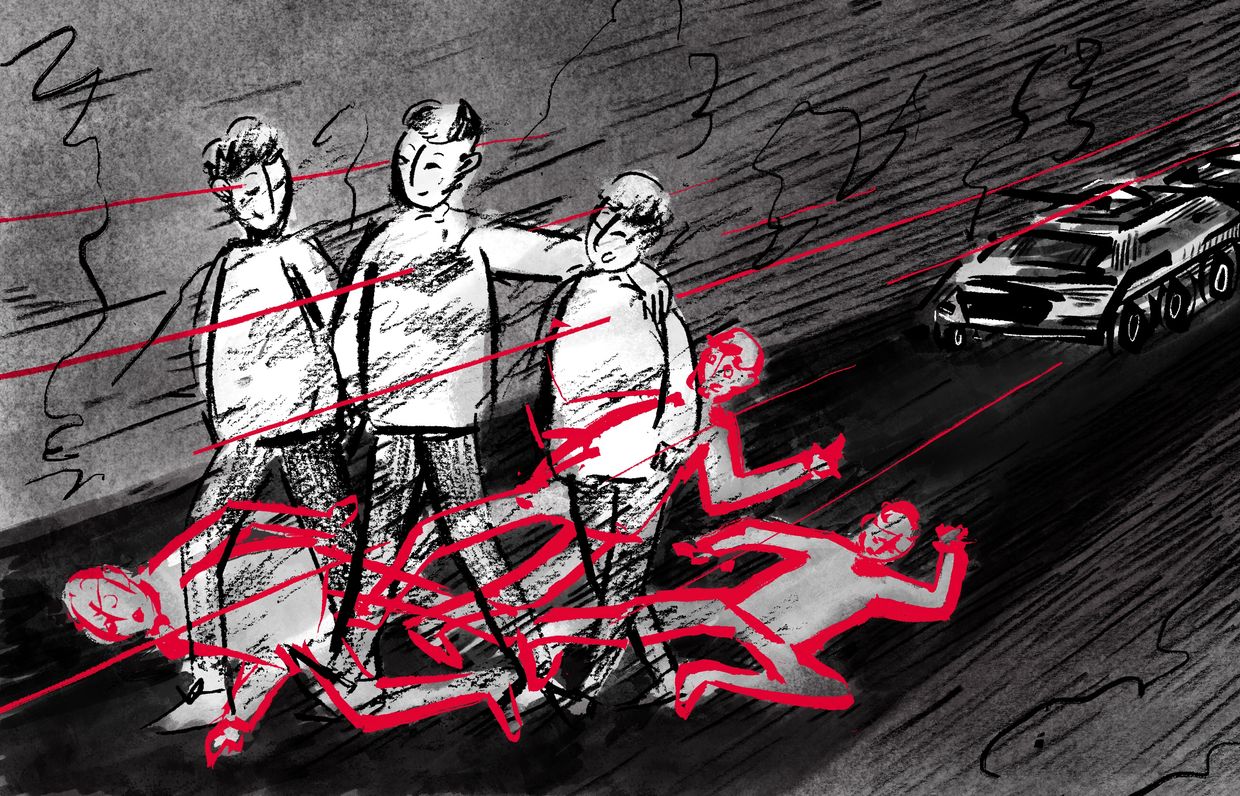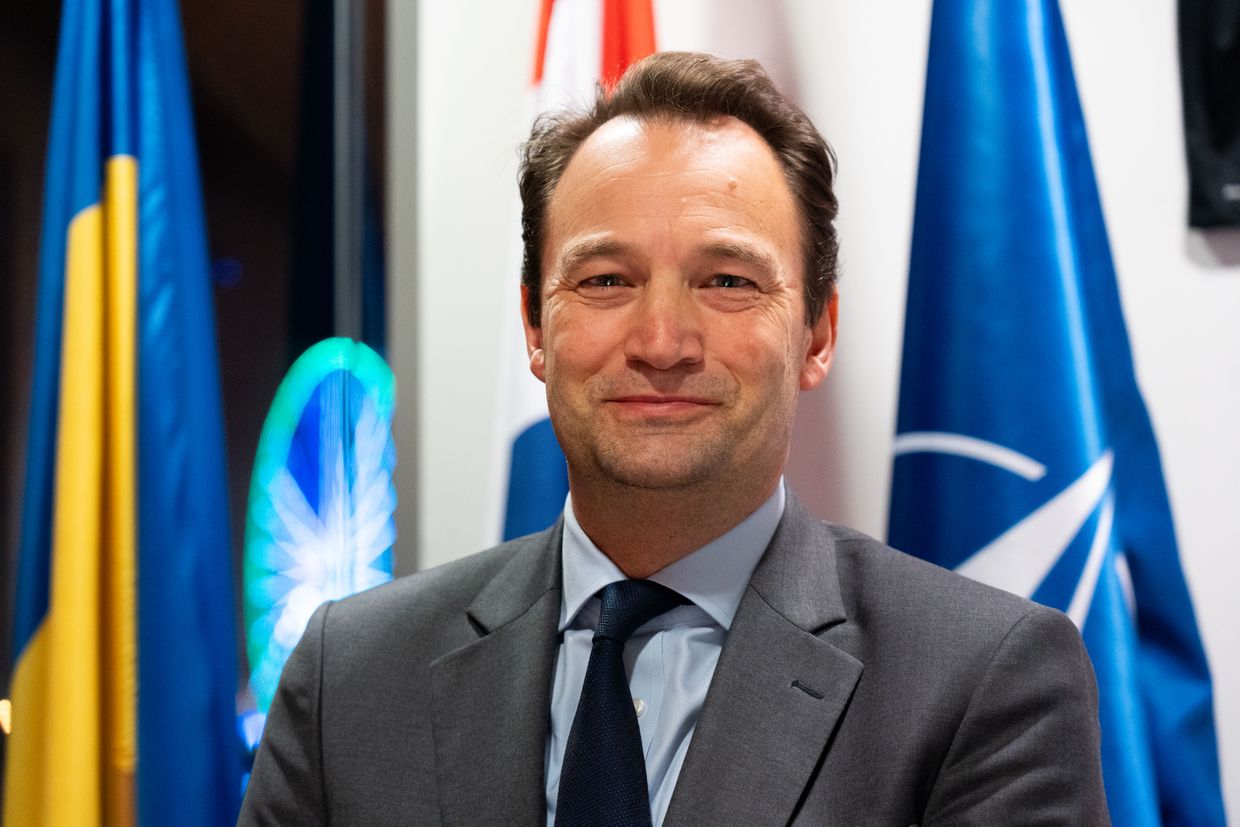Ukraine war latest: Defense minister expects bill on mobilization in 'coming days'

Key updates on Dec. 23-24:
- Defense minister expects bill in 'coming days' to change approaches to mobilization
- Zelensky: ‘It's not about how we decorate our homes, but rather how we protect them’
- Defense Ministry: Paris to host 'artillery coalition' to strengthen Ukrainian army
- NGO returns 3 children from Russian-occupied territory
- Polish Foreign Minister: Western allies must rearm in response to Russian aggression
A bill on the mobilization of conscripts will be registered in the Verkhovna Rada, Ukraine’s parliament, in the "coming days," Defense Minister Rustem Umerov told Ukrainian media outlet Suspilne in a Dec. 24 interview.
Umerov said the bill would change the approaches to mobilization in Ukraine to make sure that society does not see conscription as "punishment."
"We are preparing a mobilization blueprint that should be understandable to the public. We are discussing it with the military, the Cabinet of Ministers, and the Verkhovna Rada," Umerov told Suspilne.
The new mobilization plan covers the issues of joining the military, training conscripts, rotation, and finishing military service, he said.
President Volodymyr Zelensky said in November that he had instructed Commander-in-Chief Valerii Zaluzhnyi and Umerov to present a new mobilization plan.
On Dec. 19, Zelensky said Ukraine’s military leadership proposed mobilizing 450,000-500,000 additional conscripts.
"This is a serious number. I said I need more arguments to support this direction," Zelensky said during a press conference.
Umerov told Suspilne that if society wants Ukraine to return to its 1991 borders, it is necessary to understand how occupied territories will be liberated.
He added that the mechanisms of mobilization and demobilization required adjustment in this context.
"If we seek society's support, we must explain how and whom we want to invite to serve and what will happen to that person when discharged. To address this, we are preparing a draft law," Umerov said.
He also said that the term "demobilization" would not be used until the war's end, but there would be military leave for soldiers.

Zelensky: ‘It's not about how we decorate our homes, but rather how we protect them’
President Volodymyr Zelensky said in his Christmas Eve address on Dec. 24 that millions of Ukrainians had learned "another dimension of Christmas" as they once again celebrate this holiday in the time of a full-scale war against Ukraine.
"This Christmas has a different mood, different context, different taste," he said in a video address posted across social media platforms.
"Today, all Ukrainians are together. We all celebrate Christmas together. On the same date, as one big family, as one nation, as one united country,” Zelensky said, standing in front of the Kyiv Pechersk Lavra, an ancient monastery at the heart of Ukraine’s capital.
Earlier this year, Ukraine’s Orthodox Church officially switched to the revised Julian calendar, which celebrates Christmas on Dec. 25, along with most Orthodox and Roman Catholic churches. The move aimed to better align with the civil Gregorian calendar and to distance itself from the Russian Orthodox Church, which still celebrates Christmas on Jan. 7.
“Our gifts, values, and traditions have changed. Today it's not so much about how we decorate our homes, but rather how we protect them and clean up the mess, sweeping the enemy out. We rejoice at seeing the first star in the evening sky and not seeing enemy missiles and Shahed (drones) in it,” said Zelensky.
He also said that the wishes of Ukrainian children have changed from “I wish for my dad to come home early from work” to “I wish for my dad to come back (from war).”
“For all the fathers, husbands, brothers, grandfathers to come back. Mothers, wives, sisters. To return victorious,” he said. “All of those who are marking the Christmas Eve in the trenches with weapons in their hands, facing the enemy. All our warriors of light. Guardian angels of Ukraine, who prove to us every day: the good will prevail, the light will prevail.”
Defense Ministry: Paris to host 'artillery coalition' to strengthen Ukrainian army
A new "artillery coalition" to strengthen the Ukrainian army will begin its operations in Paris in January 2024, Deputy Defense Minister Ivan Havryliuk announced on Dec. 24 during the meeting with the delegation from the Senate of the French Parliament.
He said it's crucial for Ukraine to "enhance its firepower by receiving artillery systems from its allies," according to the Defense Ministry’s statement citing Havryliuk.
"In particular, the Armed Forces of Ukraine are interested in further procurement of self-propelled artillery units, such as Caesar," reads the statement.
The Defense Ministry also reported that in 2024, "tests are scheduled for the fire control system of the Caesar self-propelled artillery unit using artificial intelligence."
Havryliuk said the AI implementation "will result in a 30% reduction in the use of ammunition for zeroing in and targeting," the ministry reports.
According to the statement, Havryliuk also asked the French delegation to assist in increasing the number of ammunition for the Caesars.
Earlier on Dec. 18, Brigadier General Oleksandr Tarnavskyi said that Ukrainian forces face shortages of artillery shells and have to scale down some military operations due to a decrease in foreign aid.
"There's a problem with ammunition, especially post-Soviet (shells) – that's 122 mm, 152 mm. And today, these problems exist across the entire front line," said Tarnavskyi, who commands the Tavria group of forces.
Russia's advantage in artillery shells has long been one of the critical obstacles pointed out by Ukrainian commanders.
"The volumes that we have today are not sufficient for us today, given our needs. So, we're redistributing it," Tarnavskyi said, explaining that the military is scaling down its tasks as a result.
NGO returns 3 children from Russian-occupied territory
Three Ukrainian children have been rescued from Russian-occupied territory by Save Ukraine, a Ukrainian humanitarian NGO, the organization’s head, Mykola Kuleba, reported on Dec. 24.
"In this way, we have completed the 14th rescue mission, during which we saved 14 children, seven of whom are children deprived of parental care," Kuleba wrote on Facebook.
This time, the NGO rescued an eight-year-old boy, Yelysei, who lived with his grandmother in an occupied part of Kherson Oblast. When the boy’s grandmother died, "Russian occupation authorities immediately placed the child in an orphanage," Kuleba said.
Save Ukraine has helped Yelysei’s mother, who was sick at that time and lived in Odesa, get proper medical assistance and retrieve her child.
"The woman had to undergo lengthy interrogations by the FSB (Russia's Federal Security Service), engage in interviews, and overcome (other) obstacles. Fortunately, she managed to retrieve her son from the orphanage," Kuleba wrote.
Along with Yelysei, Save Ukraine managed to return two 18-year-old brothers, Andrii and Mykhailo. According to Kuleba, the brothers are orphans who were raised in a foster family in the occupied territory.
"Upon reaching adulthood, the boys realized that the occupation authorities would soon conscript them to fight against their own people. In Ukraine, both were listed as missing persons," he wrote.
"Now, all three of them are safe. They are awaiting recovery and a return to normal life."
As of late December, Ukraine has identified over 19,500 children who have been deported or forcibly displaced by Russia since the start of the full-scale invasion.
Less than 400 of them have been returned to Ukraine, according to the national database.
Save Ukraine says it has brought back 226 children.
In March, the International Criminal Court (ICC) issued arrest warrants for Maria Lvova-Belova and Russian dictator Vladimir Putin over their role in the forced deportation of Ukrainian children.
Polish Foreign Minister: Western allies must rearm in response to Russian aggression
Poland's new Foreign Minister Radoslaw Sikorski has urged Western allies to further develop plans for long-term military production amid Russia's onslaught of aggression in Europe, the Polish Foreign Minister said in an interview with The Guardian on Dec. 23.
As Russia continues its full-scale invasion of Ukraine, Sikorski emphasized the need for European nations to prioritize offering long-term contracts to arms companies or fund manufacturing themselves to match Russia's wartime economic mobilization, warning that industrial capacities ultimately decide wars.
"As the West, we are 20 times richer than Russia, but if Russia puts its economy on a wartime footing and we continue on a peacetime basis, they can outproduce us,” Sikorski warned.
Sikorski's comments come as the foreign minister returns from his first trip to Kyiv since being appointed to his new role on Dec. 13. Sikorski met with President Volodymyr Zelensky in a bilateral meeting on Dec. 22, hoping to turn "a new page in our relations" with its European neighbor.
Sikorski met with Zelensky at a time when the Ukrainians fear that Western support is waning, with major funding packages from both the EU and U.S. being held up. Pentagon officials have previously warned that U.S. funds to replenish arms and equipment sent to Ukraine will run out on Dec. 30.
“The Ukrainians are tired, but they are the only people who are entitled to be tired by this war. We in this West are either inconvenienced or bored, but we don’t have the right to be tired, because we are not making any sacrifices,” Sikorski said. "If Putin conquers Ukraine, all our other issues will become microscopic by comparison."
Against the backdrop of ongoing threats from Russia, including saber-rattling the use of nuclear weapons, Poland's national security agency has estimated that NATO could face an attack from Russia within 36 months.
Polish officials have previously suggested that Russia might target a NATO alliance member in Eastern Europe, including countries such as Poland, Estonia, Romania, and Lithuania.














